Detailed introduction of Tallinn University:
Introduction and Overview
Geographical location: Located in the center of Tallinn, the capital of Estonia, with very convenient transportation, only 4 kilometers away from Tallinn International Airport and 1 kilometer away from the port.
Student and faculty scale: There are more than 10,500 students and more than 5,700 faculty and staff, including more than 120 international teachers and researchers.
International Exchange: It is an international university in the Baltic Sea region, and more than 5% of the students are international students. As one of the exchange institutions of the famous EU project Erasmus, it has cooperation with many universities around the world and is affiliated to the European University Association (EUA), the European Capital University Network (UNICA), and the Baltic Sea Region University Network (BSRUN).
History and establishment time
Tallinn University was established in 2005 by the merger of several well-known universities and colleges in Tallinn. The founding members include the Estonian Academic Library, the Estonian Institute for Humanities, the Institute of History of the Estonian Academy of Sciences, and Tallinn Normal University.
School strength
Faculty: It has more than 1,200 teaching and research personnel to provide students with high-quality education and guidance.
Subjects and majors: The school has 19 research institutes and 5 The school offers a wide range of disciplines and majors, covering education, humanities, social sciences, natural sciences and art. It also has a Japanese language research center and a large Chinese language research center, providing a variety of interdisciplinary courses and projects, such as digital culture, creative industry management and educational technology.
Research achievements: Actively participate in many EU Commission, EU region and Erasmus program projects, its researchers actively carry out research work in their respective professional fields, and have achieved certain scientific research results, making important contributions to the social and cultural development of Estonia.
Institutional nature
One of the largest higher education institutions in Estonia, it is a comprehensive, research-oriented university.
Educational philosophy
Through education, research and interdisciplinary cooperation, it plays a leading role in the field of smart life research, is committed to cultivating students to make decisions based on research to improve the welfare of society and citizens, attaches importance to the comprehensive development of students and faculty, encourages innovation and practice, and promotes the dissemination and application of knowledge.
Key laboratories and disciplines
Key laboratories: Although it is not explicitly mentioned that there are specific key laboratories, the school's research institutes have carried out in-depth research work in related fields, providing strong support for discipline development and scientific research innovation.
Key disciplines: Social sciences and anthropology are the school's strengths, and it has also made significant progress in natural sciences. It also has a good reputation in the fields of education and humanities.
Faculty
The school has the following colleges and research institutes and other teaching and research units:
College of Humanities: Covers multiple language, culture, history, philosophy and other related majors and research directions, and is committed to cultivating students' professional qualities and comprehensive abilities in the humanities.
College of Education: Focuses on the research and teaching of educational theory and practice, cultivates professional talents in the field of education, and promotes educational reform and development.
Estonian Language and Culture Institute: In-depth research and inheritance of Estonian language and culture, cultivates relevant professional talents, and promotes the inheritance and development of Estonian culture.
College of Fine Arts: Provides professional education in art creation, design and other aspects, and cultivates students' artistic aesthetics and creative ability.
German-Romans Language and Culture Institute: Focuses on the teaching and research of Germanic and Romance language and culture related languages.
College of Sports Science and Health: Dedicated to research and talent cultivation in the fields of sports science, physical education, health management, etc.
School of History: Conduct in-depth research on historical events, figures, culture, etc., and provide students with systematic history education.
School of Library and Information Science: Cultivate professionals in information management, library science, etc., and promote the effective management and utilization of information resources.
School of International and Social Sciences: Pay attention to international issues, social phenomena, etc., carry out relevant research and teaching, and cultivate talents with international vision and social responsibility.
School of Mathematics and Natural Sciences: Covers teaching and research in natural sciences such as mathematics, physics, chemistry, and biology, providing students with a solid foundation in natural sciences and professional knowledge.
School of Psychology: Researches human psychological phenomena and behavioral laws, cultivates psychology professionals, and provides support for mental health services and related fields.
School of Political Science and Public Administration: Focuses on teaching and research in political theory, public policy, administrative management, etc., and cultivates management talents for governments, social organizations, etc.
School of Slavic Languages and Cultures: In-depth research on languages and cultures related to the Slavic language family, and promotes cultural exchanges and cooperation.
Information Research Institute: Conducts research on information technology, information management, etc., and promotes the application and development of information technology in various fields.
Institute of Ecology: Dedicated to the research of ecosystem, environmental protection, sustainable development, etc., providing scientific basis for the protection and improvement of ecological environment.
Institute of Social Work: Focus on social issues, cultivate social work professionals, and promote the realization of social welfare and social justice.
Estonian Institute of Future Studies: Conduct forward-looking research on future trends and social development directions, and provide strategic guidance for the sustainable development of society and economy.
Estonian Institute of Demography: Study the changes in population size, structure, distribution and their impact on social economy.
Ranking
Ranked in the 1001-1200 range in the 2024 QS World University Rankings.
Fees
Tuition fees for different majors vary. For specific tuition information, please refer to the school's official website or relevant admissions materials.
Campus
Campus facilities: A modern library was newly built in the 21st century. The reading room in the library is open 24 hours a day. There are also modern classrooms and laboratories and many leisure places throughout the campus. There are various convenient transportation tools and facilities around the campus.
Campus life: The school has a symphony orchestra, many internationally renowned choirs and art groups, and several Estonian championship-level sports teams, providing students with a rich and colorful campus cultural life. In addition, the school will also hold various academic lectures, cultural activities, sports events, etc. to enrich students' extracurricular life and promote their all-round development.
-
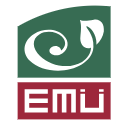
Estonian University of Life Sciences
-
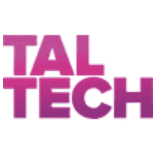
Tallinn University of Technology
-
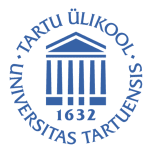
University of Tartu
-

Tallinn University
-
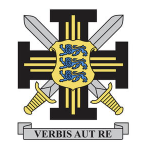
Estonian Academy of Security Sciences
-

Estonian School of Diplomacy
-
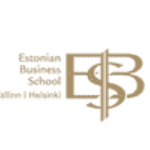
Estonian Business School
-

Estonian Academy of Arts
-
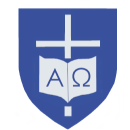
Institute of Theology of the EELC
-
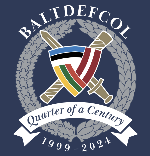
Baltic Defence College
-

Mesoamerican University
-

Istmo University
-

Mariano Galvez University of Guatemala
-

Regional University of Guatemala
-

Galileo University
-

Francisco Marroquín University
-

Rafael Landívar University
-

University of the Valley of Guatemala
-

University of San Carlos of Guatemala
-

Technological Institute of Tlaxcala Plateau
-

Golfo University
-

Technological University of South Sonora
-

Technological University of Huejotzingo
-

Tizimín Institute of Technology
-

Chilpancingo Institute of Technology
